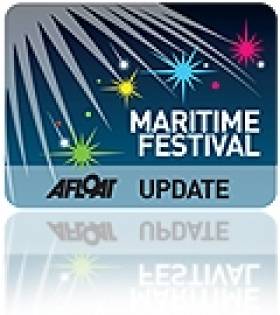Displaying items by tag: Sean Connick,
Ireland Newfoundland Conference to Focus on Marine Leisure Infrastructure
Almost 50% of the Newfoundland population can trace their ancestry to South East Ireland. The two islands also share economic development challenges, providing opportunities for collaboration in the areas of fisheries, coastal tourism and local development.
In 2004, an annual festival was developed to facilitate closer cooperation between the two countries. The festival alternates between South East Ireland and Newfoundland consists of a series of 60 events over ten days including three formal conferences.
Ireland Newfoundland Festival of the Sea - Marine Leisure Conference
Friday, 24th September 2010, 9am - Brandon House Hotel, New Ross, Co. Wexford
9:00 Registration
9:30 – Introductions by Sean Reidy, CEO JFK Trust
- Welcome by John Dwyer, Chairman, New Ross Town Council
- Opening by Sean Connick, Minister of State, Department of Agriculture, Fisheries & Forestry
- Special Guest: Dennis O'Keefe, Mayor of St. John's, Newfoundland
10:00 – Developing a Marine Leisure Infrastructure Strategy with Vicki O'Donnell, Coastal & Marine Resource Centre, University College Cork
11:00 Tea & coffee
11:15 Workshops
1) Estuary and cruising ground, facilities at harbours
Chaired by – Captain Phil Murphy, Kilmore Quay Harbour Office & Andy Careen, Southern Shore, Newfoundland
2) Community heritage interpretation
Chaired by - Declan Rice, CEO, Kilkenny Leader Partnership & Pat Curran, CEO, Irish Loop Development Board, Newfoundland
3) Marketing & packaging
Chaired by – Ethna Murphy, Fáilte Ireland & John Chidley, Ferryland, Newfoundland
12:30 Feedback chaired by David Minogue, Town Clerk, New Ross Town Council
13:00 Lunch
14:30 Boat trip to Duncannon (bus collection in Duncannon and on to Hook Lighthouse)
14:30 Bus trip to Kennedy Homestead, Duncannon and on to Hook Lighthouse
Almost 50% of the Newfoundland population can trace their ancestry to South East Ireland. The two islands also share economic development challenges, providing opportunities for collaboration in the areas of fisheries, coastal tourism & local development.
In 2004, an annual festival was developed to facilitate closer cooperation between the two countries. The festival alternates between South East Ireland & Newfoundland & consists of a series of 60 events over 10 days including 3 formal conferences.
Each festival has featured a conference on the marine sector & this year, 2010, New Ross is hosting a conference with a focus on Marine Leisure Infrastructure as a useful focus for both countries, with contributions from each country.
Past events of the Ireland Newfoundland Festival
2004
Hook Head Visit from the Premier of Newfoundland & Labrador & the Minister for Innovation
Newfoundland Irish representatives met with the Premier of Newfoundland & Labrador, & representatives of the Federal & Provincial Government as well as many communities in the Southern Avalon
Duncannon Visit from the Minister for Tourism of Newfoundland & Labrador
2005
Dunmore East Full Festival including Maritime Heritage conference with an Irish contribution from the Coastal & Marine Resources Centre, UCC
2006
Newfoundland Full Festival including Coastal Zone & Catchment Management conference with Irish contributions from: Dept of Marine; Eastern Regional Fisheries Board; Coastal & Marine Resources Centre, UCC & National Fishermen's' Association
2007
Kilmore Quay Full Festival including Fisheries & Coastal Communities conference with Irish contributions from: DG Fisheries & Maritime Affairs, European Commission; Marine Institute & BIM
2009
Newfoundland Full Festival including Fisheries conference with Irish contributions from local charter angling boats.





























































